How to Remember Answers for Exams
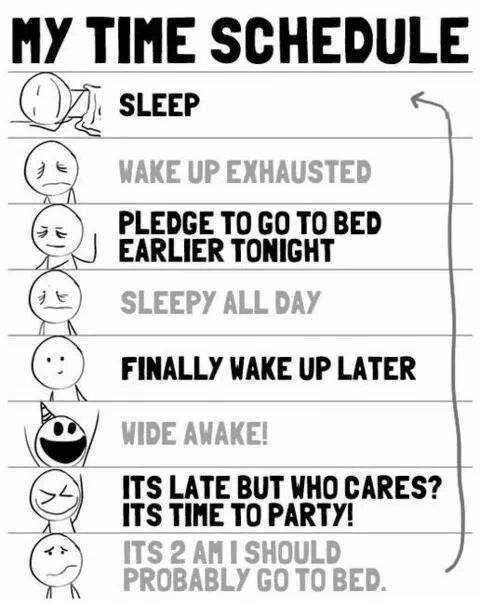
When preparing for important assessments, retaining crucial details can often feel overwhelming. The process requires more than just reviewing notes; it involves strategies that enhance cognitive function and ensure that information stays accessible under pressure.
Effective techniques can make a significant difference in your ability to recall critical concepts, whether during a timed test or when trying to recall specific data quickly. With the right approach, even the most challenging subjects become easier to tackle.
Memory strategies play an essential role in this process. By utilizing the right methods, you can significantly improve retention and performance, ultimately achieving greater success in your academic endeavors.
Techniques to Retain Key Information
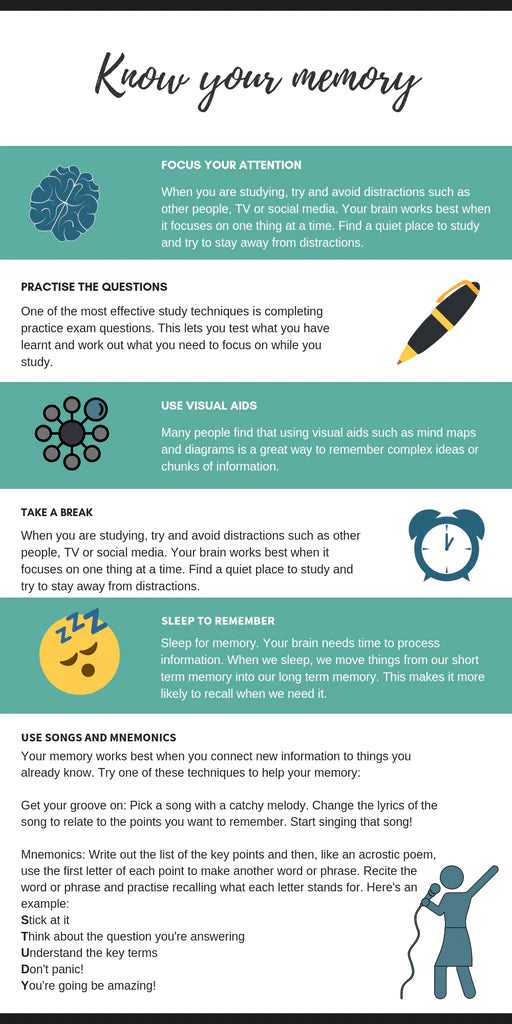
Successfully recalling important material during a test requires more than simple memorization. Effective learning techniques focus on strengthening your ability to quickly access and use information under pressure. By incorporating the right strategies into your study routine, you can improve retention and perform at your best when it matters most.
Focus on Active Engagement
Passive review often leads to surface-level familiarity, which can quickly fade. Active engagement with the material is crucial. This involves techniques like self-quizzing, teaching the material to others, and regularly practicing what you’ve learned. By testing yourself frequently, you reinforce neural connections and deepen your understanding, making recall faster and more reliable.
Utilize Visualization and Associations
Visualization can significantly aid retention. Creating vivid mental images of concepts helps anchor information in your memory. Additionally, associating new details with things you already know builds strong connections, making it easier to retrieve the information when needed. Creating visual patterns or stories around the material can also help you retain complex concepts more effectively.
Effective Study Habits for Retention
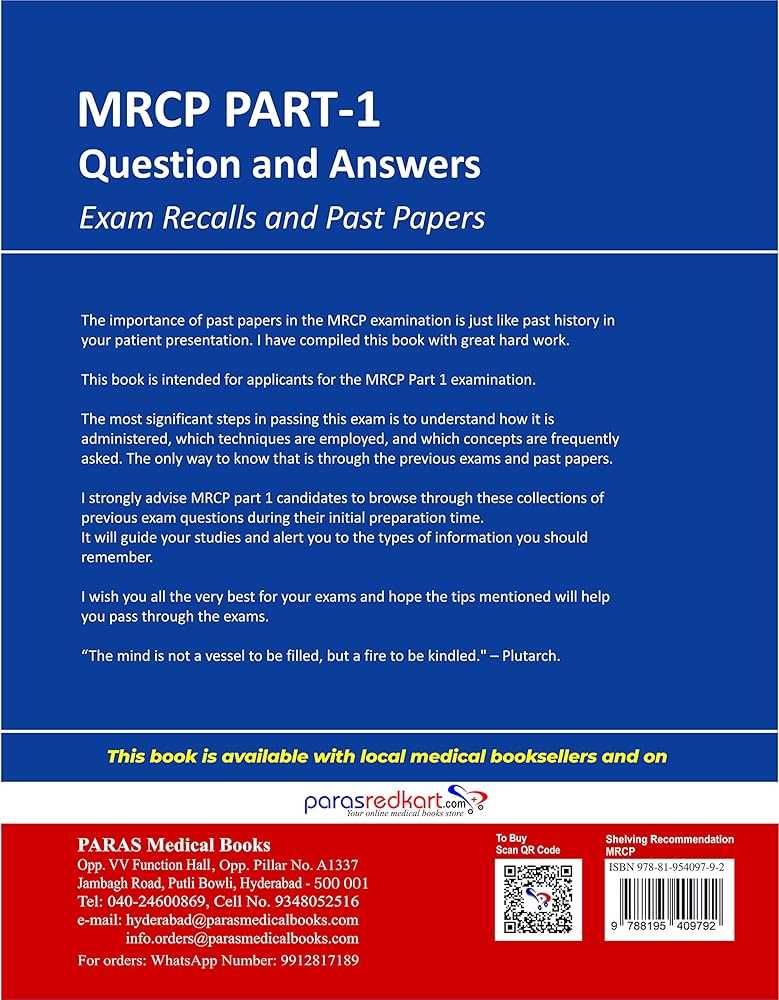
Consistent study habits are essential for long-term retention of material. Without a structured approach, it’s easy to forget important concepts or become overwhelmed. By developing a routine that incorporates proven techniques, you can significantly enhance your ability to recall key information when needed.
Establish a Study Schedule
A well-organized study schedule can make a huge difference in how well you retain information. Instead of cramming, break study sessions into manageable blocks, allowing for regular breaks to keep your mind fresh. Here are a few tips to get started:
- Set specific times each day for studying.
- Alternate between different subjects to maintain focus.
- Schedule short breaks to prevent burnout.
Prioritize Active Learning Techniques
Active learning methods are much more effective than passive reading or listening. Engage with the material through interactive techniques that force your brain to work actively. Consider incorporating these strategies:
- Test yourself regularly on the material you’ve studied.
- Summarize key points in your own words.
- Teach someone else what you’ve learned.
Visualization Techniques to Boost Memory
Visualization is a powerful tool for enhancing memory retention. By creating mental images and associating them with the information you need to recall, you can strengthen neural connections and improve your ability to access stored data quickly. This technique not only aids in memorization but also helps with organizing complex concepts in a way that makes them easier to retrieve during critical moments.
One effective method is to create vivid, detailed mental pictures of the material you are studying. For example, visualizing a historical event as if it were a movie scene can help cement the details in your mind. Additionally, pairing abstract concepts with familiar objects or places can create strong associations that make the information stick.
Another useful approach is the “mind palace” technique, where you mentally place information in specific locations within a familiar setting, like your home. As you walk through this mental space, each location triggers the recall of a specific piece of information, making the material more accessible and memorable.
Use of Mnemonics for Easier Recall
Mnemonics are techniques designed to make it easier to retrieve complex information from memory. By simplifying and encoding details into more memorable formats, such strategies allow you to access key concepts with greater ease. These memory aids transform abstract or challenging data into something more tangible, improving both recall speed and accuracy.
Acronyms are one of the most common mnemonic devices. They take the first letter of each word in a series and combine them into a simple, easy-to-remember word. For example, using “PEMDAS” for the order of operations in math (Parentheses, Exponents, Multiplication, Division, Addition, Subtraction) makes the steps easier to recall during problem-solving.
Rhymes and songs are also effective. Setting facts or concepts to a catchy tune can make them more memorable, as the rhythm and melody activate different parts of the brain. Similarly, creating short, memorable phrases or stories around complex topics can provide a mental hook to help you recall more easily under pressure.
Chunking Information for Better Recall
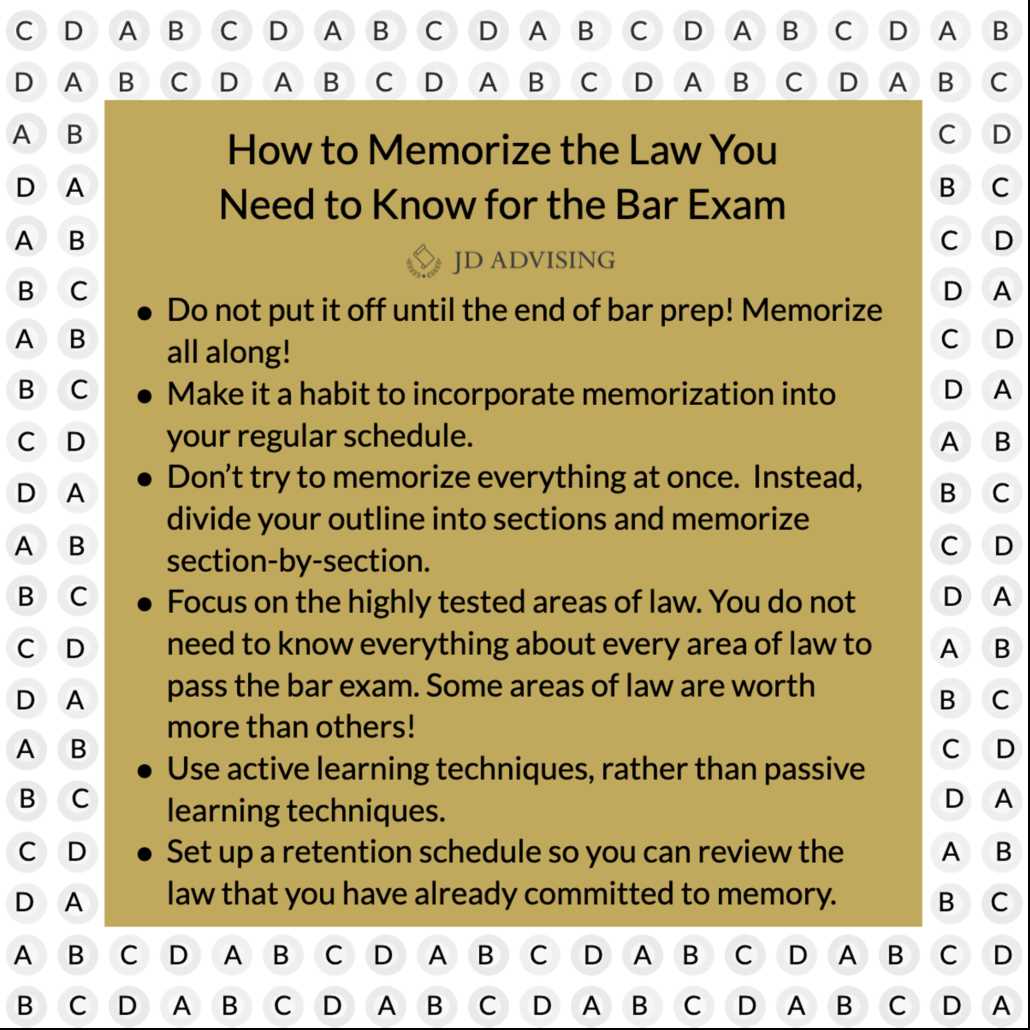
Chunking is a technique that involves breaking down large amounts of information into smaller, more manageable units. This method allows the brain to process and store complex data more efficiently. By grouping related pieces of information together, you can improve the speed and accuracy of recall, making it easier to access important details when needed.
For example, when trying to memorize a long string of numbers, chunking them into smaller segments–such as groups of three or four digits–makes the task less overwhelming. This method takes advantage of the brain’s ability to process a limited number of units at once, making large amounts of information easier to retain and recall.
| Original Information | Chunked Information |
|---|---|
| 1234567890 | 123-456-7890 |
| ABCD1234EFGH5678 | ABCD-1234-EFGH-5678 |
By organizing data into chunks, you can enhance both your short-term memory and long-term retention, making it easier to recall and apply the information effectively during assessments.
Active Recall vs Passive Review
When it comes to mastering new material, not all study techniques are equally effective. Two common approaches are active recall and passive review. While both can play a role in your learning process, they differ significantly in how they engage the brain and impact long-term retention.
Active Recall: Engaging Your Memory
Active recall involves actively retrieving information from memory without relying on notes or other external cues. This method forces the brain to work harder, strengthening neural pathways and enhancing retention. By frequently testing yourself on the material, you reinforce the information and make it easier to access in the future.
Passive Review: A Less Effective Approach
On the other hand, passive review typically involves reading notes, highlighting text, or listening to lectures without actively engaging with the content. While this can help reinforce familiar concepts, it does not provide the same level of cognitive stimulation as active recall. Passive review often leads to superficial understanding and weaker long-term retention.
Practice Tests for Memory Strengthening
Regularly taking practice tests is one of the most effective ways to solidify knowledge and improve recall under pressure. By simulating real assessment conditions, you train your brain to retrieve information quickly and accurately. This method not only helps identify areas that need improvement but also boosts confidence when facing actual evaluations.
Practice tests encourage active engagement with the material, which strengthens memory pathways and promotes better long-term retention. The more you test yourself, the more familiar the material becomes, making it easier to recall during critical moments.
- Start with untimed practice sessions to become comfortable with the content.
- Gradually increase the difficulty and timing to simulate actual conditions.
- Review incorrect answers to identify gaps in knowledge.
- Repeat tests periodically to reinforce learning and track progress.
By incorporating practice tests into your study routine, you can enhance both your recall speed and accuracy, improving performance when it matters most.
Time Management Strategies for Studying
Effective time management is crucial when preparing for important assessments. Properly allocating study time allows you to cover all necessary material without feeling overwhelmed. By organizing and prioritizing tasks, you can study more efficiently and retain information more effectively, ensuring that you are fully prepared when the time comes.
Create a Study Schedule
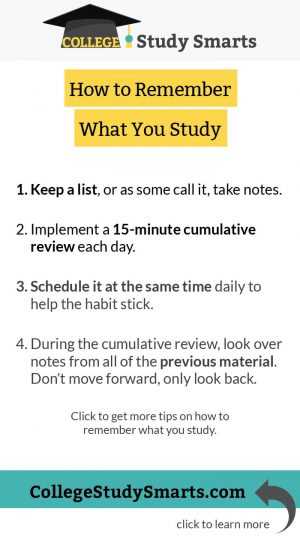
One of the most effective ways to manage time is by creating a study schedule. Plan out each day or week in advance, allocating specific time slots for different topics or subjects. This helps you stay focused and prevents procrastination. Be sure to include breaks to avoid burnout and keep your mind fresh.
Prioritize Your Tasks
Not all material is equally important, so it’s essential to prioritize tasks based on their difficulty or relevance. Start by tackling the most challenging or unfamiliar topics first, as these will require more cognitive effort. Once these are mastered, move on to easier or more familiar content. This ensures that you allocate your mental energy where it’s needed most.
Sleep and Its Impact on Memory
Quality sleep plays a vital role in how well information is stored and later recalled. During rest, the brain processes and consolidates the material learned throughout the day, strengthening neural connections. Without adequate sleep, the brain’s ability to retain and retrieve key details is significantly impaired, making it harder to access important information when needed.
Research shows that deep sleep, particularly during the later stages of rest, is crucial for memory consolidation. The brain takes the time to organize newly acquired knowledge, transferring it from short-term to long-term storage. This is why a good night’s sleep is essential after intense study sessions, as it reinforces the material learned and improves recall accuracy.
How to Avoid Overloading Your Brain
When preparing for an important assessment, it’s easy to fall into the trap of trying to cram too much information in a short period. This overwhelming approach can lead to mental fatigue, making it harder to retain and recall key details. The key to effective learning is balancing study sessions and allowing the brain time to process and absorb new information.
To avoid overloading your mind, follow these strategies:
- Take regular breaks: Studies show that taking short breaks between study sessions helps maintain focus and improves memory retention.
- Prioritize quality over quantity: Focus on understanding key concepts rather than trying to memorize everything at once.
- Use spaced repetition: Spread out your study sessions over days or weeks to allow the material to consolidate in your long-term memory.
- Avoid multitasking: Focus on one topic at a time to enhance concentration and ensure deeper learning.
- Get enough sleep: Rest is essential for cognitive function and memory consolidation. Ensure you’re well-rested before any critical review sessions.
By managing your study sessions effectively and giving your brain the time it needs to absorb information, you can reduce stress and improve your chances of performing well under pressure.
Creating a Memory Palace for Exams

The Memory Palace technique is an ancient method used to enhance recall by associating information with specific locations within a familiar mental space. By visualizing a place you know well, such as your home or a favorite walk, you can mentally “store” pieces of information in different areas of that space. This approach takes advantage of the brain’s natural ability to remember spatial relationships, making it easier to retrieve details when needed.
To create your own Memory Palace, start by selecting a space you are intimately familiar with, such as a room in your house or a route you take regularly. Then, break the information you need to recall into smaller “chunks” and assign each chunk to a specific part of your space. For example, you might place key concepts on your bed, on the kitchen counter, or along a hallway. When you need to recall the information, mentally walk through your space, retrieving each piece of information from its designated location.
Steps to build your Memory Palace:
- Choose a familiar location: This could be your home, a route you often walk, or even a favorite place in nature.
- Break down the material: Divide the information into manageable chunks or concepts.
- Place each chunk in a specific location: Assign a piece of information to each room or landmark in your chosen space.
- Practice regularly: Walk through your Memory Palace in your mind, reinforcing the connections between the space and the information.
With regular practice, the Memory Palace can become a powerful tool to boost recall during high-pressure situations, like assessments, by making the information feel more tangible and accessible.
Using Flashcards for Quick Recall
Flashcards are a simple yet effective tool for reinforcing knowledge and improving the speed at which information can be accessed. By presenting material in a question-and-answer format, they help trigger recall and actively engage your brain in the learning process. This technique is particularly beneficial for reviewing key concepts and testing your understanding in a compact and portable way.
Benefits of Flashcards
Flashcards offer several advantages in enhancing cognitive recall. They promote active learning by encouraging you to recall information rather than passively review it. This process of retrieval strengthens the neural pathways associated with the material, making it easier to recall later. Additionally, flashcards can be used in spaced repetition, allowing you to focus on the most challenging material over time.
Effective Flashcard Strategies
To maximize the benefits of flashcards, follow these tips:
- Keep them concise: Write a single concept or question on one side, and the corresponding answer or explanation on the other.
- Use images and diagrams: Visual aids can help reinforce complex information, making it easier to recall.
- Review regularly: Consistent review, particularly with spaced intervals, helps reinforce the material in your long-term memory.
- Shuffle the cards: Mix up the order of the cards to prevent memorization based on sequence and ensure deeper understanding.
By incorporating flashcards into your study routine, you can reinforce essential concepts and improve your ability to quickly retrieve information when it’s most needed.
Importance of Regular Review Sessions
Consistent revision plays a critical role in retaining information over time. Rather than cramming all material into one session, periodic reviews help strengthen memory retention and ensure the concepts remain accessible when needed. Revisiting previously studied topics at regular intervals reinforces neural connections and reduces the likelihood of forgetting key details.
Why consistent review matters:
- Strengthens long-term retention: Spaced repetition helps consolidate knowledge in long-term memory, making it easier to recall under pressure.
- Enhances comprehension: Revisiting material allows for deeper understanding and identifies any gaps in knowledge.
- Prevents forgetting: Regular exposure to studied content prevents the natural process of forgetting, ensuring better preparedness.
- Boosts confidence: The more often you review, the more confident you become in your ability to recall the material during the assessment.
Incorporating review sessions into your study schedule provides a structured approach to learning, ensuring that you are consistently reinforcing what you’ve learned, leading to improved performance when it matters most.
How to Focus During Study Sessions
Maintaining concentration during study periods is essential for effective learning. Without focus, distractions can easily derail progress and diminish the quality of your study time. Creating an environment that minimizes interruptions and using specific strategies to enhance attention can significantly improve the efficiency of your efforts.
Creating the Ideal Study Environment
Your surroundings play a major role in your ability to concentrate. A clean, quiet, and organized space reduces the chances of distraction and encourages a focused mindset. Consider the following tips:
- Choose a quiet location: Find a place where external noise is minimal to prevent disruptions.
- Organize your space: A tidy environment helps reduce mental clutter, allowing you to concentrate on the task at hand.
- Limit digital distractions: Keep your phone and other electronics out of reach to avoid constant notifications.
Techniques to Maintain Attention
Aside from a proper environment, implementing certain techniques can further enhance focus during study time:
- Set specific goals: Define clear objectives for each session to stay on track and measure progress.
- Use the Pomodoro technique: Break your study time into intervals (e.g., 25 minutes of studying followed by a 5-minute break) to maintain mental freshness.
- Practice mindfulness: Brief moments of deep breathing or meditation can help center your mind and improve overall concentration.
By creating a focused study environment and utilizing proven concentration techniques, you can significantly enhance your ability to retain information and maximize the effectiveness of your study sessions.
Reducing Stress for Better Retention
Stress can significantly hinder the brain’s ability to process and store new information. When under pressure, the body’s fight-or-flight response takes over, which can impair cognitive functions such as focus and memory. Learning to manage stress effectively can improve concentration, enhance recall, and ensure better performance when it matters most.
Techniques to Manage Stress
Implementing relaxation techniques is essential in maintaining a calm and focused state of mind. Consider the following strategies:
- Deep breathing exercises: Slow, deep breaths activate the parasympathetic nervous system, helping to relax both body and mind.
- Progressive muscle relaxation: Tensing and relaxing different muscle groups can reduce physical tension and promote mental calmness.
- Mindfulness meditation: Practicing mindfulness helps to center the mind, increase awareness, and reduce racing thoughts that may hinder focus.
Maintaining a Healthy Lifestyle
In addition to stress management techniques, maintaining a balanced lifestyle plays a critical role in stress reduction. These habits can help keep stress levels under control:
- Exercise regularly: Physical activity releases endorphins, which reduce stress and boost mood.
- Get enough sleep: Quality rest is essential for brain function and memory consolidation.
- Maintain a balanced diet: Proper nutrition supports cognitive performance and helps the body cope with stress.
By incorporating stress-reducing techniques and maintaining a healthy lifestyle, you can improve your ability to retain and recall information, ultimately enhancing your overall study effectiveness.
The Role of Diet in Memory Retention
A well-balanced diet plays a crucial role in supporting cognitive functions and improving the ability to retain and process information. The brain requires specific nutrients to function optimally, and what you consume can significantly impact your focus, learning capacity, and overall mental performance. Choosing the right foods can help enhance memory and concentration, giving you an edge during your preparation.
Essential Nutrients for Cognitive Function
Certain vitamins, minerals, and fatty acids are particularly beneficial for brain health. Here are some key nutrients that can boost cognitive abilities:
- Omega-3 fatty acids: Found in fish like salmon, omega-3s are essential for brain health and can improve memory and learning capacity.
- Antioxidants: Fruits and vegetables rich in antioxidants, such as berries, spinach, and kale, help reduce oxidative stress and protect the brain from age-related decline.
- Vitamins B6 and B12: These vitamins are crucial for nerve function and the production of neurotransmitters, which are involved in memory and mood regulation.
- Vitamin E: Found in nuts and seeds, vitamin E protects brain cells from damage and supports long-term memory.
Foods to Enhance Focus and Retention
Incorporating brain-boosting foods into your diet can help you stay sharp and focused during study sessions. Consider adding these foods to your daily meals:
- Leafy greens: Spinach, kale, and other leafy vegetables are rich in nutrients that support memory function.
- Nuts and seeds: Walnuts, flaxseeds, and almonds contain healthy fats that promote cognitive health.
- Whole grains: Foods like oats, brown rice, and quinoa provide steady energy to the brain, which is vital for sustained concentration.
- Eggs: Packed with choline, eggs support the production of acetylcholine, a neurotransmitter that plays a role in memory.
By fueling your body with the right nutrients, you can enhance brain function, increase focus, and improve memory retention, all of which are essential for efficient studying and better academic performance.
Staying Consistent with Study Routine
Establishing a steady study schedule is one of the most effective ways to boost knowledge retention and prepare efficiently. Consistency allows the brain to gradually absorb new information, reinforcing what has already been learned and preventing last-minute cramming. By incorporating regular review and deliberate practice, learners can ensure long-term success without feeling overwhelmed.
Benefits of a Structured Study Plan

Adopting a consistent routine provides several advantages that directly enhance learning outcomes:
- Improved Focus: A dedicated study schedule helps minimize distractions and keeps your attention on the task at hand.
- Reduced Stress: When you study regularly, you’re less likely to face the anxiety that comes with procrastination and unpreparedness.
- Better Time Management: Regular study sessions ensure you allocate enough time for all topics, avoiding rushed or incomplete review sessions.
- Reinforced Memory: Consistent repetition strengthens neural pathways, making it easier to recall information during critical moments.
Effective Study Routine Tips
To maintain consistency, consider these key strategies:
| Tip | Description |
|---|---|
| Set Specific Goals | Break down large tasks into smaller, achievable objectives for each session to maintain focus and track progress. |
| Prioritize Difficult Topics | Start with the most challenging material to ensure it receives adequate attention while your mind is fresh. |
| Use Active Recall | Engage in active recall by testing yourself regularly on what you’ve learned, which helps strengthen memory retention. |
| Take Regular Breaks | Avoid burnout by taking short breaks between study intervals. This improves focus and prevents fatigue. |
By following these simple guidelines and staying consistent with your study sessions, you’ll be better equipped to retain information and perform well when it matters most.